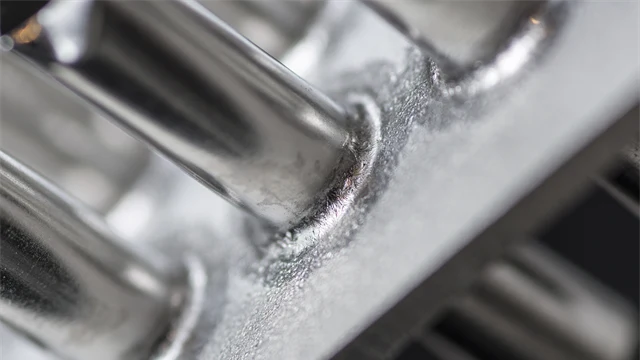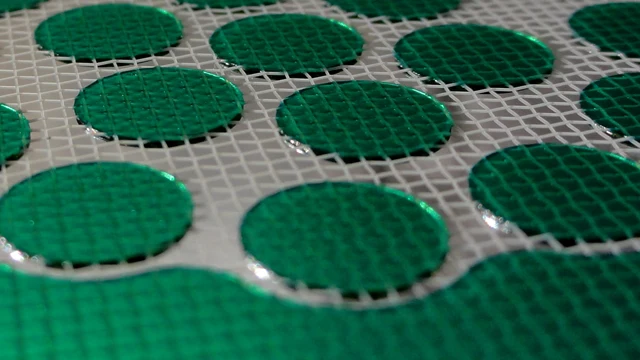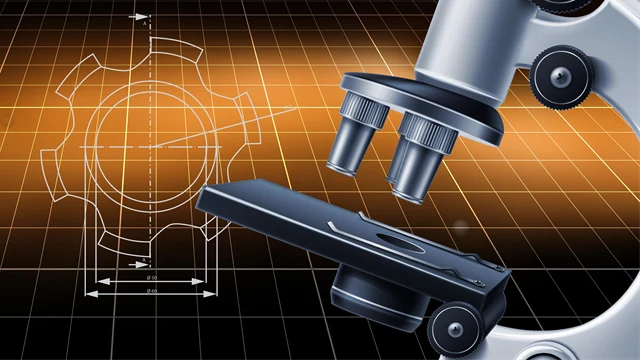
Produkte
Edelstahl-Hartlote auf Eisenbasis
Unsere rostfreien Hartlote auf Eisenbasis sind besonders beliebt für Anwendungen, bei denen herkömmliches Kupferlöten durch Edelstahllöten ersetzt wird. Dazu gehören Anwendungen wie Ölkühler und gelötete Plattenwärmetauscher (BPHE), bei denen der Kupfergehalt in der Endanwendung auf einem Minimum gehalten werden muss. In Umgebungen mit hohen Temperaturen und hoher Korrosion kann Kupfer in das Motoröl in einem Ölkühler oder in die Flüssigkeit in einem gelöteten Plattenwärmetauscher ausgelaugt werden. Bei Ölkühlern ist dies im Allgemeinen unerwünscht, da es die Leistung und Lebensdauer des Kühlsystems beeinträchtigt.
Für gelötete Komponenten für Trinkwasseranwendungen gelten strenge Vorschriften zur Begrenzung des maximal zulässigen Kupferionengehalts im Wasser, was die Verwendung anderer Hartlote erforderlich macht. Rostfreie Hartlote auf Eisenbasis besitzen einen besonderen technischen Vorteil, weil aus ihnen nur geringe oder nicht signifikante Mengen an Metallionen in das Trinkwasser ausgelaugt werden. In dieser Hinsicht sind sie den konventionellen Hartloten auf Nickelbasis und dem Kupferlöten überlegen.
BrazeLet® F300 und BrazeLet F86 sind Edelstahl-Hartlote auf Eisenbasis mit guten Benetzungseigenschaften bei Werkstoffen auf Edelstahlbasis im Vakuum oder in Schutzatmosphären. Der hohe Gehalt an legiertem Chrom (Cr) führt zu einer überlegenen Beständigkeit gegen Heißgas- und Säurekorrosion, wodurch sich die Legierungen zum Löten bei Anwendungen wie Wärmetauschern, Edelstahl-Ölkühlern für Nutzfahrzeuge und Abgasrückführungskühlern eignen. Die Hauptunterschiede zwischen den beiden Legierungen liegen in der Festigkeit der Lötverbindung und der empfohlenen Löttemperatur, wobei BrazeLet F86 eine höhere Festigkeit bietet als BrazeLet F300, aber etwas höhere Löttemperaturen erfordert.
Zusätzlich zu unseren standardmäßigen Edelstahl-Hartloten auf Eisenbasis verfügt Höganäs über die volle Kompetenz und Erfahrung, um in Zusammenarbeit mit unseren Kunden spezifische Legierungen zu entwickeln, wenn die Anwendung dies erfordert. Bitte kontaktieren Sie uns, wenn Sie Bedarf an einem Hartlot haben, dessen Eigenschaften von unserem bestehenden Produktportfolio abweicht.
BrazeLet® Hartlote auf Eisenbasis
BrazeLet F300
BrazeLet® F300 ist ein einzigartiges rostfreies Hartlot auf Eisen-Chrom-Basis für Anwendungen in extremen Umgebungen. Seine einzigartige chemische Zusammensetzung bietet eine ähnliche Korrosionsbeständigkeit und Verbindungsfestigkeit wie hochleistungsfähige Hartlote auf Nickelbasis. Durch die Verwendung von kostengünstigeren Metallen ist es eine kosteneffiziente Alternative.
BrazeLet F300 hat hervorragende Benetzungseigenschaften, eine niedrige Löttemperatur und bildet eine gleichmäßige Verbindung mit hoher Festigkeit und hoher Korrosions- und Oxidationsbeständigkeit. Daher eignet sich das Hartlot für Wärmetauscher in der Industrie und im Automobilsektor.
Die erste Wahl für die steigende Nachfrage nach kupferfreiem Löten, z. B. für Trinkwasseranwendungen und Ölkühler.
Vorteile
- Kosteneffizient
- Flexibilität bei großen Spalten
- Korrosionsbeständig
- Hohe Festigkeit
Zusammensetzung
ISO 3677, B-Fe39CrNiCuPSi-1000/1070
Zulässige Verunreinigungen gemäß ISO 17672
Zulässige Verunreinigungen gemäß ANSI/AWS A5.8
Schmelztemperatur
1000-1070°C
Min. Löttemperatur
1100°C
BrazeLet F300DW-9007
BrazeLet F300DW-9201
BrazeLet F300P-9012
BrazeLet F300R-8501
BrazeLet F300R-9003
BrazeLet F86
Kontakt

Vertrieb & technischer Support
Datenschutzerklärung
Ich bin damit einverstanden, dass Höganäs meine personenbezogenen Daten dafür nutzt, Kontakt mit mir aufzunehmen. Meine Kontaktdaten können auch zu Marketingzwecken verwendet werden, beispielsweise für Newsletter und andere relevante Informationen. Die Daten werden nicht an Dritte weitergegeben. Mit meiner Einwilligung bestätigte ich außerdem, dass ich älter als 16 Jahre bin.
Weitere Informationen über unseren Umgang mit personenbezogenen Daten sind in unserer Datenschutzerklärung zu finden.


